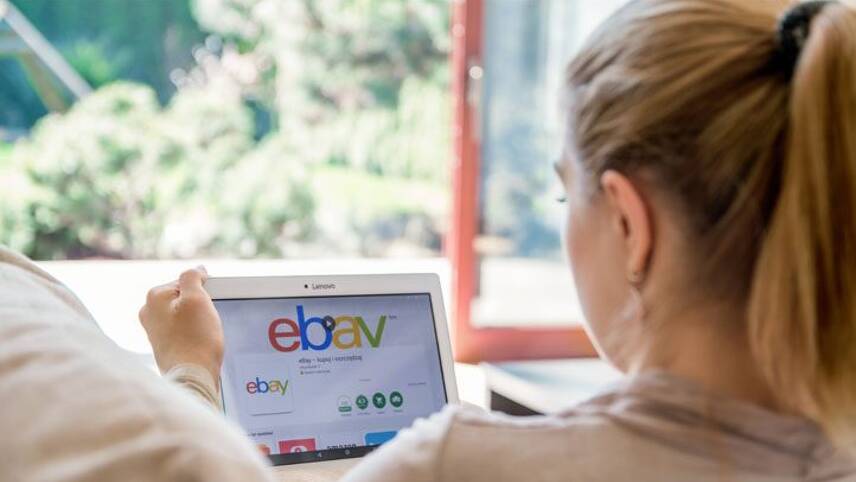Register for free and continue reading
Join our growing army of changemakers and get unlimited access to our premium content

Lockdown
The online marketplace released the new search data this week and claims that a record number of customers are actively searching for sustainable homewares.
Searches for ‘eco furniture’ and ‘sustainable furniture’ were, respectively, up 123% and 171% in 2020 compared to 2019. One of the UK’s major eBay sellers in this category is Wigan-based ClearCycle, which sells refurbished homewares through its ClearDeals Outlet. The business has seen a 205% year-on-year growth in sales.
Drivers of this trend are likely to be numerous. With extra time at home, many households are taking the chance to redecorate. The recession likely means that many are keen to source furniture, appliances and DIY supplies on a budget. One GlobalData poll found that three in five UK adults have either redecorated or refurnished at least one room since March 2020, or are planning to do so.
But there will also be environmental drivers. Business models centred around resale and refurbishment are designed to keep goods out of landfill or incineration
“Refurbished items are clearly front of mind for many not just because they are more sustainable, but they’re also great value,” eBay UK’s category manager for home and garden, Alex Hiatt, said.
“This customer interest is a trend we expect will continue – that both larger and smaller furniture retailers can continue to benefit from.”
Gumtree has also been urging shoppers to stay away from “fast homeware” – decorative items and furniture which, while cheap, are not durable and are often thrown away after minimal use. It has worked with the University of Leeds to calculate the carbon savings of popular second-hand items, including sofas and tables.
“While fast fashion has long been discussed as part of the sustainability agenda, ‘fast homeware’ is less widely discussed, despite the negative impact it’s having on the environment,” Gumtree’s chief marketing officer Hannah Rouch said.
“But with the interiors and homewares market continuing to grow, it’s imperative that we act now to stop the trend for fast homeware in its tracks… It’s not about saying no to new or mass-market products completely, but about finding a balance and choosing wisely. We need to change our mindsets so that heading straight for mass-produced items does not become the default. Taking the time to explore and track down a pre-owned, vintage or second-hand good find, allows you to breathe new life into items and ensures that a less-than-box-fresh piece of furniture or decorative item doesn’t go to waste.”
Business model shifts
eBay’s business model was founded with resale in mind. But many other businesses have been keen to either enter the market, or scale-up resale models, since last March.
Selfridges, for example, last year launched a new service enabling shoppers to buy and sell vintage and modern garments and accessories from own-brand labels instore and online. Other brands offering a similar service include VivoBareFoot, Farfetch, Adidas and Burberry, The global fashion resale market is set to grow to $64bn by 2024, expanding 1.5 times quicker than the fast fashion sector.
In the furniture space, Ikea started buying back selected used furniture lines through its UK and Ireland business late last year. Furniture that is taken back is then either resold as second-hand or recycled if it is not in a fit condition for resale.
But the past 12 months have not been without challenges for organisations that refurbish or resell goods. The Charity Retail Association estimates that the third sector is incurring losses of £28m for every month the UK spends in lockdown, largely as a result of charity shop closures. Many charities do not have online sale solutions for donated goods. As a result, some are reportedly selling their goods for extremely low prices per kilo or giving them away.
In response to this issue, a new online platform called Vintage Cash Cow was set up by antique trader Antony Charman and marketing specialist David Weaver. The business pays charities for their unsold and non-saleable donations across categories including non-precious and precious metals, jewellery, militaria, toys, cameras and old currency. Items are accepted in any condition and, to date, it has made more than £200,000 worth of purchases. Funding for purchases is raised through the recycling or resale of goods.
Vintage Cash Cow has partnerships with 270 charities that collectively operate more than 1,800 shops. They include Age UK, YMCA, Cats Protection, Sue Ryder, Mind and the RSPCA.
“After the first lockdown, shops received far more donations than usual and were struggling to sort the stock and clear the shop floor,” Vintage Cash Cow’s head of charity partnerships Garry Wilkinson said. “The result was that many charities were forced to dispose of lower value items to clear space for these surplus donations.”
Sarah George


Please login or Register to leave a comment.